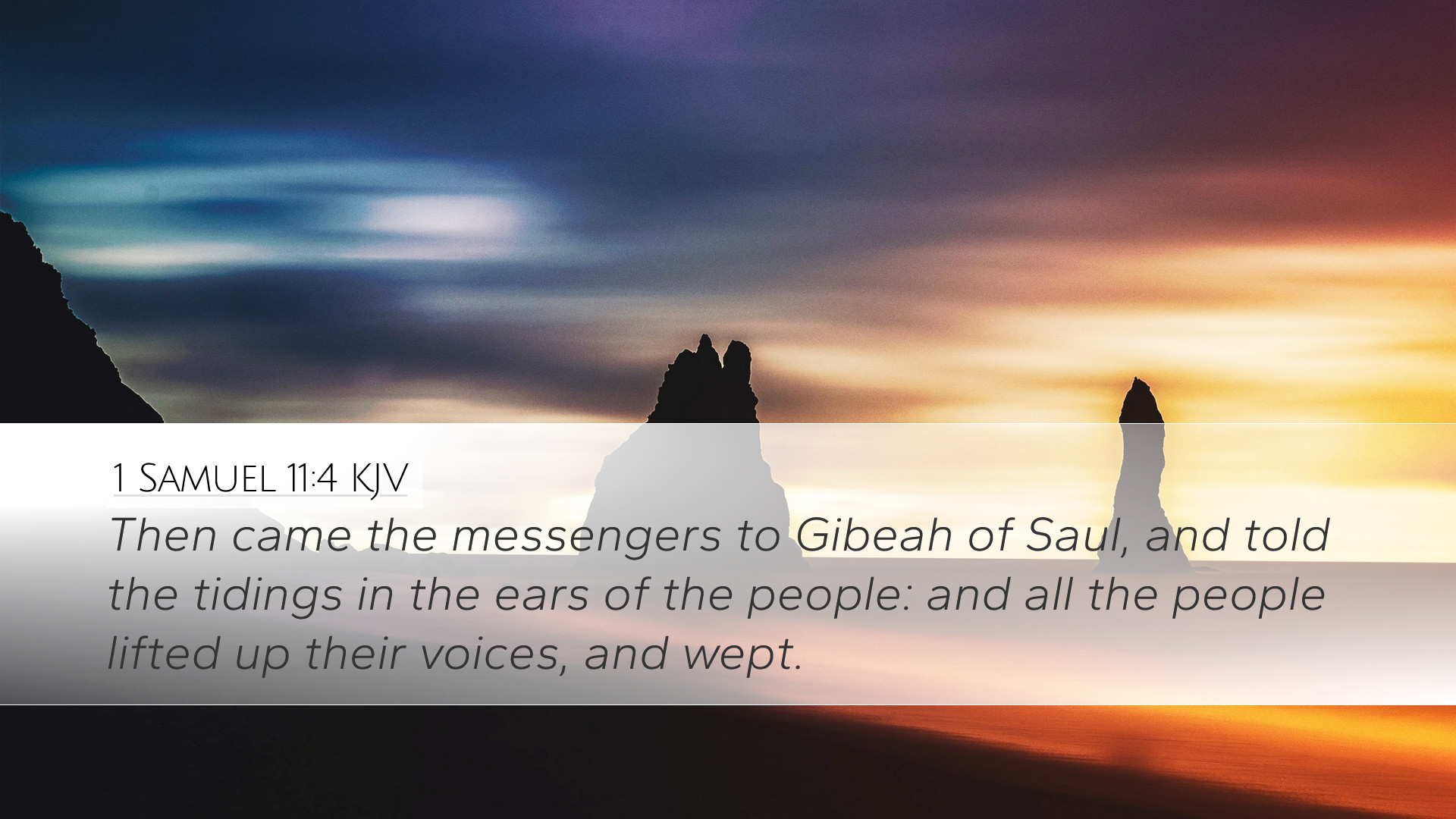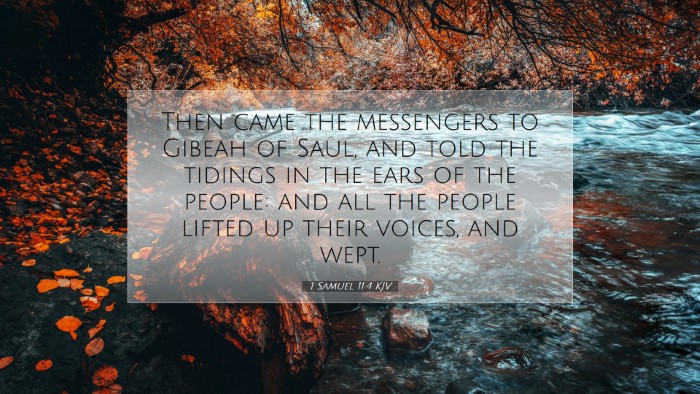Commentary on 1 Samuel 11:4
Verse: "Then the messengers came to Gibeah of Saul and told the news in the hearing of the people; and all the people lifted up their voices and wept."
Contextual Analysis
This verse occurs in a pivotal moment in the history of Israel, specifically in the reign of Saul as the first king. Prior to this event, the Ammonites, led by Nahash, threatened the Israelite city of Jabesh-Gilead. The people of Jabesh sought to negotiate a treaty. However, the conditions were harsh, as Nahash demanded the right to put out the right eye of every citizen. The news of this threat reached Saul, who was not openly king in function at this time but had been anointed.
Insights from Commentaries
Matthew Henry's Commentary
Matthew Henry highlights the emotional response of the people of Gibeah upon hearing the plight of Jabesh-Gilead. He points out the gravity of their weeping, indicating a deep sense of urgency and fear among the Israelites. The people’s tears reflected the dire situation they found themselves in, emphasizing the theme of communal lamentation during times of crisis. Henry notes that their mourning was a call to action, a recognition that they must unite against a common enemy.
Albert Barnes' Notes on the Bible
Albert Barnes elaborates on the significance of the messengers from Jabesh-Gilead going to Gibeah. He asserts that communication in times of distress is vital, as it not only informs the larger population of the danger but also fosters solidarity among the Israelites. He notes that the weeping of the people can be seen as both a spiritual response and a social catalyst. Barnes posits that their sorrow could lead to the necessity of a leader to rise up, which in turn became Saul's opportunity to step forward and display his leadership.
Adam Clarke's Commentary
Adam Clarke provides a poignant reflection on the cultural implications of this outcry. He remarks that such a communal expression of grief was common in ancient Near Eastern societies and reflected the collective psychology of the Israelite people. Clarke emphasizes the importance of community support in the face of adversity, illustrating humanity's need for compassion and empathy in collective struggles. He also suggests that this moment was crucial in galvanizing Saul’s authority as he later rallies the Israelites to respond to the threat of Nahash, transforming public despair into a unified force for action.
Theological Implications
Reflecting on this verse through a theological lens, several themes arise:
- Leadership in Crisis: The emotional upheaval amongst the people sets the stage for Saul's leadership. When faced with communal adversity, the need for a decisive leader becomes apparent.
- Human Vulnerability: The tears of the people show that vulnerability is a shared human experience. It calls attention to the need for divine intervention and guidance through troubling times.
- Community and Solidarity: The response of the people signifies the importance of unity. This theme of collective action is crucial, especially under threats from enemies.
Practical Applications for Modern Readers
For pastors, students, theologians, and scholars, this verse and its commentary encourage the examination of how we respond to crises within our communities:
- Awareness and Response: It stresses the importance of being informed about the suffering of others and responding with compassion and action.
- Empathy and Support: The communal weeping illustrates the necessity of empathy in ministry and community care. Recognizing and validating emotional pain can lead to constructive actions.
- Leadership Development: It prompts leaders in the church and community to view crises as opportunities to step up and lead, reinforcing their role as shepherds.
Conclusion
The events surrounding 1 Samuel 11:4 capture a moment ripe with human emotion and divine purpose. The weeping of the people serves as a catalyst for change, pushing Saul into his role as king and a protector of Israel. The lessons drawn from this passage extend far beyond ancient times, offering wisdom for contemporary faith communities facing their own crises.


